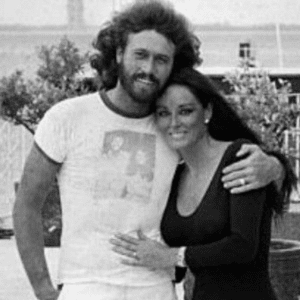
Natalie Maines, lead vocalist of the Grammy-winning group The Chicks (formerly The Dixie Chicks), stands as a beacon of resilience, artistry, and advocacy in modern music. Known for her rich vocals, bold personality, and unrelenting pursuit of truth, Maines has been a transformative figure in country and popular music. This article explores her life, career, and enduring influence, capturing the essence of an artist unafraid to challenge the status quo.
Natalie Louise Maines was born on October 14, 1974, in Lubbock, Texas, into a family immersed in music. Her father, Lloyd Maines, was a renowned steel guitarist and producer, shaping her exposure to the vibrant world of country and folk music. Growing up, Maines displayed a natural aptitude for singing and performing, often encouraged by her father to pursue her artistic dreams.
Maines attended Texas Tech University and later studied at Berklee College of Music in Boston. Her time in these institutions expanded her musical horizons, blending traditional country with influences from rock, blues, and pop. These eclectic inspirations would later define her dynamic sound as the lead singer of The Chicks.
In 1995, Maines’s life changed when she joined The Dixie Chicks, a group already gaining traction in the Texas country music scene. With founding members Martie Maguire and Emily Strayer, the addition of Maines brought a fresh energy and vocal dynamism that catapulted the band into stardom. Her confident stage presence and powerful voice became the group’s signature, propelling them to new heights.
The release of Wide Open Spaces in 1998 marked a significant milestone for the band. Featuring hits like “Wide Open Spaces,” “There’s Your Trouble,” and “You Were Mine,” the album became a cultural phenomenon, earning the group their first Grammy Awards. With 13 times platinum certification, it remains one of the best-selling country albums of all time.
Building on their breakthrough, The Dixie Chicks released Fly in 1999, which further solidified their position as icons of contemporary country music. Chart-topping tracks such as “Goodbye Earl” and “Cowboy Take Me Away” showcased their ability to tackle both lighthearted and profound themes with equal mastery. Maines’s vocal range and emotional depth were central to the album’s success.

The band’s ability to blend traditional country instrumentation with modern storytelling attracted a diverse audience, reshaping the perception of country music. Maines’s assertive and relatable persona endeared her to fans, solidifying her status as a trailblazer in the industry.
In 2003, Natalie Maines made headlines for her comments about then-President George W. Bush during a concert in London. Her statement criticizing the U.S. invasion of Iraq sparked a nationwide controversy, particularly within the country music community. Radio stations boycotted The Dixie Chicks, fans staged public protests, and the group faced intense backlash.
While the fallout was severe, Maines refused to retract her statement, exemplifying her courage and commitment to speaking her mind. The controversy became a turning point in her career, highlighting her resilience and solidifying her reputation as an artist unafraid to challenge societal norms.

The band channeled their experiences into the 2006 album Taking the Long Way, which addressed themes of perseverance, defiance, and personal growth. The lead single, “Not Ready to Make Nice,” served as a bold response to their critics, with Maines’s impassioned vocals driving the song’s powerful message. The album received critical acclaim, winning five Grammy Awards, including Album of the Year and Record of the Year.
Taking the Long Way marked a creative and emotional rebirth for The Dixie Chicks. Maines’s ability to transform adversity into art resonated deeply with fans and critics, further cementing her legacy as a fearless and authentic artist.
During the band’s hiatus, Maines embarked on a solo career, releasing her debut album Mother in 2013. The album featured a mix of rock and folk influences, showcasing her versatility as a vocalist and her willingness to experiment with new sounds. Covering songs by artists such as Pink Floyd and Jeff Buckley, Maines demonstrated her artistic breadth and ability to reinterpret iconic tracks with her unique style.

Though Mother deviated from her country roots, it received praise for its emotional depth and innovative arrangements. The project allowed Maines to explore her individual voice while staying true to her commitment to honest storytelling.
In 2020, Maines and her bandmates made the decision to rename their group as The Chicks, distancing themselves from the term “Dixie” due to its association with the Confederacy. This change reflected their ongoing commitment to social justice and inclusivity. That same year, they released Gaslighter, their first studio album in 14 years.
Gaslighter delved into themes of betrayal, heartbreak, and resilience, with Maines’s emotive vocals taking center stage. Songs like “March March” highlighted the band’s activism, addressing contemporary social and political issues. The album received critical acclaim, reaffirming The Chicks’ relevance and artistry in a rapidly evolving music landscape.

Natalie Maines’s influence extends far beyond her music. As an outspoken advocate for social justice, LGBTQ+ rights, and environmental sustainability, she has used her platform to champion causes close to her heart. Her willingness to stand by her convictions, even in the face of adversity, has inspired countless fans and fellow artists.
Through her music and advocacy, Maines has redefined what it means to be a country artist, challenging stereotypes and pushing boundaries. Her ability to evolve while remaining true to her values ensures her lasting impact on the industry.

Natalie Maines is more than a powerhouse vocalist; she is a symbol of courage, authenticity, and artistic excellence. From her groundbreaking work with The Chicks to her fearless solo endeavors, Maines has consistently demonstrated the power of music to inspire change and connect people. Her journey serves as a reminder that staying true to oneself, even in the face of adversity, is the ultimate form of artistry.
As Maines continues to create, perform, and advocate, her legacy remains a guiding light for artists and audiences alike. Her voice—both literal and metaphorical—will undoubtedly resonate for generations to come.


